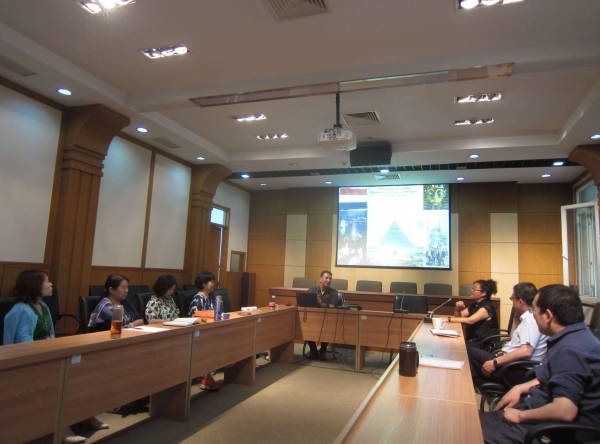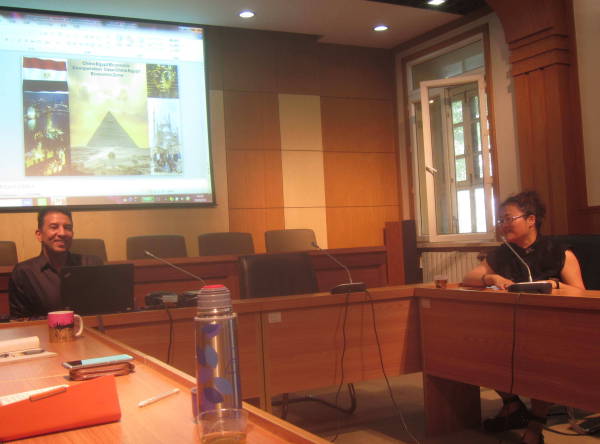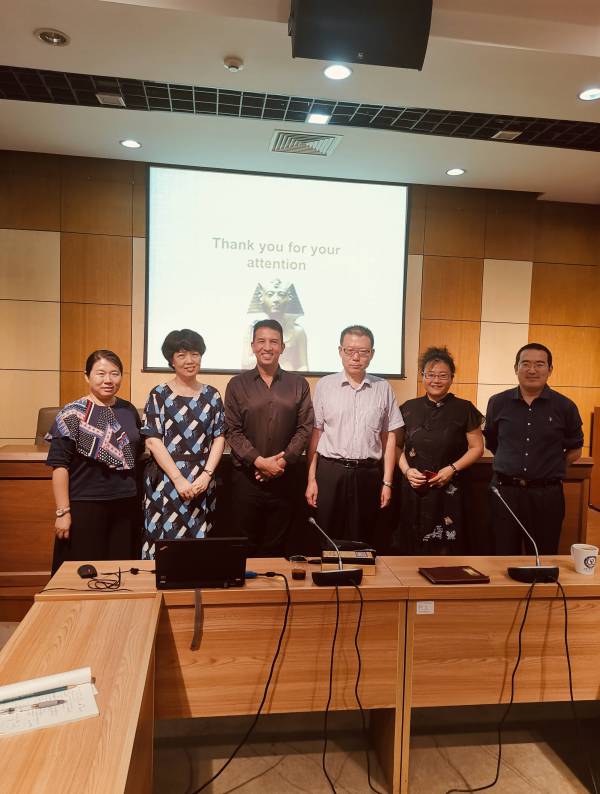On July 2, 2019,the team of the Belt and Road Initiative and People-to-People Exchange Innovation Project invited Dr. Hisham AbuBakr Metwally, Chief Economist of Egyptian Ministry of Foreign Trade and Industry, to deliver a speech on the topic “China-Egyptian Economic Cooperation and Case Study of China-Egypt Economic and Trade Cooperation Zone”. Professor He Wenping presided over the lecture and some scholars from Division of African Studies, Division of Middle East Studies, Division of International Relations Studies and Information Center took part in the activity.

Dr. Hisham AbuBakr Metwally pointed out that Egypt is rich in human resources with a population of 100 million, of which the proportion of young people is rather high. Egypt’s annual population growth rate is 1.93% while its GDP growth increased from 2.3% in 2011 to 5.3% in 2018. In 2017, Egypt’s GDP reached $235.37 billion. The unemployment rate also fell from 12.5% in 2016 to 8.1% in 2018.
China-Egypt TEDA Suez Economic and Trade Cooperation Zone played a significant role in promoting the process of industrialization in Egypt. As a special economic zone, the TEDA Suez enjoyed excellent transportation and many preferential policies lavished by the Egyptian government. It is looking forward to more companies with advanced technology to enter.

The unstable political conditions and wars and conflicts in the Middle East have a certain restrictive effect on investment in the cooperation zone.
The achievements of the 1st Phase of TEDA Suez persuaded the Egyptian government to agree carrying on the 2nd one. The area of the cooperation zone had also expanded from 2 square kilometers to 6 square kilometers. The development of Jushi Egypt Fiberglass Co., Ltd. was one of the successful examples of China’s foreign investment and investment promotion in Egypt. Located in the cooperation zone, the company was wholly-owned by China Jushi Co., Ltd.
After the speech, the participating scholars had question and answer session and discussed on topics including “the development of the African integration process”, “future challenges faced by the Egyptian economic and trade cooperation zone” and “current political and economic situation in Egypt”, etc.
